The Twilight Zone redefined storytelling, drawing audiences into the unimaginable. Now, 66 years later, top writers, artists, and musicians are stepping into its eerie glow with a fresh twist. Ready to see where they’ll take you?
LINKS TO THE PIECES
Liz Zimmers | Edith Bow | Sean Archer | Bryan Pirolli | Andy Futuro | CB Mason | John Ward | NJ | Hanna Delaney | William Pauley III | Jason Thompson | Nolan Green | Shaina Read | J. Curtis | Honeygloom | Stephen Duffy | K.C. Knouse | Michele Bardsley | Bob Graham | Annie Hendrix | Clancy Steadwell | Jon T | Sean Thomas McDonnell | Miguel S. | A.P Murphy | Lisa Kuznak | Bridget Riley | EJ Trask | Shane Bzdok | Adam Rockwell | Will Boucher | Jon T
A hothouse conservatory, with plants lined up on workbenches stretching off on either side. Mist rises and condensation sweats the windows.
A well-groomed gentlemanly man in his mid-thirties stands at the workbench next to a seedling propagator, with rubber gloves on as he tends the seedlings. He’s dressed in a bespoke shirt with silk guardsclub tie, but his jacket has been taken off and is hanging on the arm of a formally-dressed slightly older man who stands beside him. This man, with greying combed-back hair, is standing straight at military attention.
“The snapdragons are ready for transplanting early, Joseph!” says the gentleman to the man with his jacket who returns a weak perfunctory smile.
“Indeed, sir”. Clearly this manservant doesn’t care at all what happens to his master’s precious plants, but does the bare professional minimum to show interest in the gentleman’s hobby.
“Got to be very careful at the moment of uprooting them from the propagator, Joseph”, says the man. “They’re delicate little things, they mustn’t be rushed.”
The servant Joseph grunts as he shifts on his feet. Straight-backed at attention.
This is King Theobald the Eighth, hereditary ruler of Olvania, a small kingdom nestled in the center of Europe. Though a modern state, its government is almost entirely in the hands of one man, this timid, lonely man whose only passion is his plants. Today King Theobald is about to discover the limits of absolute power as he enters into the revolutionary Substack Zone...
An open-topped 1920s-model Rolls Royce Silver Ghost progresses on its stately way through the pine-forest hills on a winding road. The same man as before, Joseph the indifferent manservant, is now dressed in chauffeur’s peaked cap and is driving the car. The King sits alone in the back, taking the air. He’s dressed in a tweed hunting jacket and Tyrolean hat sporting a hawk feather in the silken hatband.
“And you’re quite sure we shouldn’t wait for the security detail, sir.” says Joseph.
“No need, Joseph” says King Theobald. “Nobody knows we’re on the way to the hunting lodge.”
“Well, we know, sir,” says Joseph, turning around slightly and – surprisingly, almost miraculously – smiling broadly. The King frowns at him, puzzled. “Quite, Joseph, but there’s no risk in you and me knowing, old boy. We’re really very safe so far out of the capital.”
“Maybe not quite so safe, sir,” says Joseph. As he turns the bend, a half-dozen men and women with submachineguns stand in the road. Joseph slows the vehicle, turns to face the King. He’s grinning widely. “Oops, sir. How very inconvenient. Looks like you just got overthrown.”
The insurrectionists’ hideout is the sort you might expect: nestled in a hollow in the high mountains, surrounded by trees, with a cavern serving as dormitory and a smaller cave for kitchen. Basic but cozy. Rebels bustle to and fro in singles and groups, bearing weapons and hoisting crates of supplies. Activity right and left, all directed toward some end unknown to their visitor.
They all pause when they see King Theobald being brought in to the campsite. Cheers and raised-fist triumphs propagate out from the center where the ex-monarch passes. The king hobbles towards a welcome treestump respite, unused despite all the hunting, to so much marching on mountain paths.
He sets his weary behind down and is given a drink of water in a tin cup. The cluster of fighters swarming around him, singing revolutionary songs and slapping each other on the back, parts to allow through a young woman.
Dark and magnetic, she’s dressed in a textbook hilltop guerrilla uniform – black beret and combat fatigues – and slings a tommygun over her left shoulder. Fastened to her beret is a red-white-and-blue rosette, as seen also on many of the hillfighters. The betrayer Joseph walks up to her and raises his fist in salute.
She speaks to the king, squatting on his treestump: “Fraternal greetings, citizen Theo, former king of Olvania. Welcome to the first day of your productive life. I am known as Robespierre.”
Robespierre leads King Theobald out of the hilltop clearing and into the smaller cave, where a large pot of something smelling good is cooking over an open fire. She shoos the cooks out and they’re left alone. Robespierre sees he’s gazing hungrily at the pot and scoops out a bowl of what turns out to be venison stew. She pours out some rough red wine in a clay cup and hands it to him as he sits on a stone by the cooking fire.
“So this is how it is, your majesty. You’re no longer head of state. As provisional head of state of the New Olvanian Republic, I hereby relieve you of your authority. You are henceforth to be known as Citizen Theo, and you will train to carry out a productive task within the people’s republic.” She sits down on a stone opposite him, lifts her cup of wine. “Cheers. Here’s to the new republic.”
“Deposed? Just like that?”
“Just like that.”
“You’re not even going to have a hearing, hold a vote?”
“Nobody ever voted for you, Theo. And we already held a hearing and you were invited, but unfortunately you didn’t attend. You sent some of your secret policemen in your place, and I’m afraid that didn’t go so well for them.”
Silence. The fire crackles.
“That wasn’t my doing that was that blasted... whatshisname...? The minister of the interior chappie.”
“Blumenhardt. No need to apologize on his behalf. He’s dead. As of this afternoon.”
“Oh... It rather seems you have been busy.”
“Haven’t we just? Overthrowing the monarchy and all. Thirsty work. Salut!”
They take a contemplative sip. Theobald speaks up sadly.
“I expect the next thing is the chop for me, what? Bullet or noose. Whatever it is, make it quick, won’t you? Bullet is better, one supposes.”
She casts out the remaining wine on the cave floor, gets to her feet: “Pish-tush, Citizen Theo! The Neo-Jacobin Democratic Movement is not some bunch of barbarians.” She places a reassuring hand on his shoulder. “You’ll be remodelled a little. Learn a trade. Become useful to society. Get some sleep now, Theo, we start for the capital in the morning.”
There’s an undoubted joie de vivre, a burgeoning spirit of liberation, in a youthful group of freedom fighters celebrating their victory, and it acts like a propagant wave of belief on those who are part of it. It ripples like excitement and victory, and bubbles through the ranks of the marching mass with their captive monarch in their midst.
Theobald is not immune. He looks at all the surging Neo-Jacobins in their pantalons and hand-carved clogs, their throwback waistcoats and cockade-adorned phrygian caps, toting machine guns and assault rifles and rocket launchers, and he hears them sing:
Ah! ça ira, ça ira, ça ira
les aristocrates on les pendra!
Et quand on les aura tous pendus
On leur fichera la paille au cul,
Imbibée de pétrole, vive le son, vive le son,
Imbibée de pétrole, vive le son du canon
His French is good enough to know that they sing of hanging aristocrats to the lampposts and stuffing their rear ends with rags soaked in petrol, but it all seems so charming nevertheless. He senses that it’s more like theater, like a ritual or a dream, than a concrete threat against his life. As the spring sun shines down on the troupe all marching together down the mountainside, he smiles and begins to sing along.
Ça ira, ça ira, ça ira...
“Now here’s the thing, Theo,” says Robespierre, once they’re back at the royal palace. His former manservant Joseph is standing next to her, to make everything seem homelike, but he’s dressed in his Jacobin combat gear, not the butler’s sharp suit, and besides the memory of yesterday’s betrayal is still rather fresh on one’s mind.
“Here’s the thing. You’ve got to go out there on that balcony now, stand at that microphone, and announce your abdication and your full support of the New Olvanian Republic. That’ll go on the radio and the newsreels, and all resistance will cease. You’ll be saving hundreds of lives, brother, because otherwise the Royal Iron Guard and the other royalist holdouts will be slaughtered to a man.”
“And what if I don’t?” said Theobald, voice quavering, almost as if he was speaking against himself.
“What do you mean, what if you don’t?” says Robespierre, taken aback. This possibility seems never to have occurred to her. “You must, Theo. If you don’t, hundreds of your supporters will die needlessly in futile resistance.”
“But the dignity of the crown-“
“-never existed, Theo.” She sighs, as if experiencing once more the exasperation of a loving mother with an errant child. “It was only ever blustering men in black shirts using you as their figurehead. Shall we?”
And she raises aside the curtain over the bay window leading to the balcony, the same balcony where young Theobald stood by papa and mama to stick his nose out over the balustrade. And how they roared, the people, back then... though now he comes to think about it, was it a roar of joy, or a roar of rage?
“Such uncertain times one is living through.” He steps out onto the balcony to absolute silence. The sun shines down on a square full of expectant people, eyes uplifted. Columns of black smoke in the middle distance to the south, and scattered gunshots off to the west.
“That was great, Theo,” says Robespierre. “You saved many lives today. The king is dead, long live the citizen.” Robespierre fetches the cognac decanter and a cut glass tumbler from the sideboard, and pours a stiff drink, passing it to the ex-butler Joseph. Theobald takes the glass that Joseph offers him.
“Now it’s time for the beginning of your new life,” says Robespierre merrily.
“Which is what?” asks Theo, exhausted and empty.
“Why, it’s whatever you want it to be!” says Robespierre with a smile. “That’s what liberation means, and we liberate everyone in the nation, from the lowest to the highest,”
She indicates the ex-king with her glass. “You were trapped in your monarch role just as much as the indentured servant was trapped laboring in the royal salt mines. You could never be what you truly wished to be, just had to play the role the men in black jackets told you to play.”
“Pah! Propaganda.”
“Now Theo, don’t be getting all tetchy, you’ve done the hard part, and you did it really well.” She lifts her own glass to him. “Cheers. Now, drink up, it’s time to go with Danton, he’ll see to the... alterations.”
“Who’s Danton? What alterations?”
“Oh, silly me!” she says. “Danton is your former butler, Mr Joseph here. We all use noms de guerre, at least for now, but I guess the need for that will be passing soon as peace is restored.”
“Bloody childish, you ask me,” says Theo, taking a hard slug of the brandy. “Making up names like kids playing pretend.”
“Perhaps so, Theo, but it doesn’t matter anymore. As for the alterations, well, we can’t have you going around looking like a deposed monarch, it would give certain people funny ideas. About restoring the monarchy and such.”
“And so...?”
“And so we’re going to have you altered. We have a very good plastic surgeon, a comrade we brought all the way from Zurich, and he’s going to make you even more handsome than you are now. You’ll grow a beard, work out, become a strapping worker of the reborn nation. You’ll be a new man!”
“But I don’t want to be a new man!” He takes another slug.
She gazes hard at him. Joseph the butler, standing straight to attention in his leather jacket with a machinegun slung across his chest, shifts awkwardly.
“Really, Theo? You don’t want to be a new man? This is a new country, you know...”
He takes another gulp, reaches over and swipes the decanter from the table.
“Well, one supposes one has no other choice.”
“’I suppose I have no other choice’, Theo. We’ll have to cure you of that upper-class affectation of always talking as ‘one’, won’t we? Have another drink, finish the bottle. Danton will be along shortly to take you to the doc.”
When it’s done, when the scars are healed and the bandages removed, Theo is indeed a new man. He’s let his beard grow out, taken some sun in the garden, and he now looks like a beached sailor shipwrecked on Tahiti rather than an ex-monarch just overthrown in a coup. They’re at the old hunting lodge in the forest where Danton was driving him on the morning when he betrayed him to the rebels.
Robespierre is back at the capital, running the New Olvanian Republic and mopping up the last of the counterrevolutionary resistance. It’s just the two of them in the lodge. Joseph the butler now Dqanton the revolutionary guard commander. Gramophone evenings and visits from the surgeon, late night poetry readings and educational broadcasts on the radio. The news has been put about that ex-King Theobald has fled to foreign exile. But the exiled royalists say he’s dead. They hesistate about naming a successor. Maybe they’ve just given up.
Danton leans in, the two of them at the fireplace drinking the new domestic brandy in tin cups, all the fine imported cognac long gone now.
“I know a secret about you, your majesty,” says Danton, slurring a little. Theo still thinks of him as his manservant Joseph, and can’t get used to this faithful retainer being in fact a betrayer and rebel leader.
“The secret of my real identity, you mean,” says Theo.
“In a manner of speaking, Theo, but maybe not how you imagine,” says Danton. “By the way, we’ll have to come up with a new name for you before we get back to the capital.”
“New name? How about Joe? Joe... Koenig.”
“Joe is perfect, my friend. Joe it is.” Joseph-Danton raises his glass in salute to the new identity. “Let’s put on a record and cut a rug, young Joe.”
Back at the capital, Robespierre is depicted on some pretty huge posters all around the main square. She exhorts the people to adopt revolutionary consciousness in broadcasts from the balcony. Her charisma is expansive and vibrant. She occupies Theo’s old rooms in the palace, but only temporarily. The purge of royalists and reactionaries is going well, she says. The fireplace crackles, its warmth benign as a friendly handshake.
“Have a glass of Bulgarian schnapps, Theo – I mean Joe,” she says, looking a little haggard from the stress of running a country but otherwise quite hale. Attractive, even. She reaches out and grips his knee. “Have you considered what job you might like to take on in our New Olvanian Republic?”
“Well, one has quite a keen avidity for gardening,” says Theo-Joe.
“No, Theo. ’I like gardening’, Joe. We still haven’t broken you of that little tic,” says Robespierre. Her rebel commander’s beret is on the table, where she reaches for a tobacco humidor. “Cuban?” she offers.
With a nifty little guillotine, labelled OBSEQUIO DEL PUEBLO CUBANO, she snips off the tip of the cigar and passes it to Joe. “Your new look is very appealing,” she says. “Rugged. I like that. Once you become part of the Parks and Gardens Commissariat I imagine you’ll become even more handsome, what with all that outdoors work to fill you out. Healthy for you.”
Joe the gardener passes through the streets of the capital at sundown, smoking a fat cigar. His gardener’s overalls are dirty, his workboots are scuffed, but he seems content as he strolls into the People’s Square. He is indeed a lot healthier-looking, full-bearded and tan.
There’s a revolutionary puppet show for the kids in one corner of the square. Marionettes. His past self is represented as a fat old man with a thick gold crown. He stares into the beady eyes of his past self and tries to work out what this strange man is thinking.
He has no memory of being this man.
The show goes on, propagating its message.
In a theatrical coup-de-main, the revolutionary guard puppets rush the stage and cut the strings of the fat King Theo marionette. The figure falls, and the children cheer. But then King Theo rises up without any strings. A miracle, the children gasp. He says “I wish you well comrades, for you represent the truest hope of the future.”
A trick with slim and invisible strings. But impressive nonetheless. One man calls out “Long live Citizen Danton!” Others shout him down. A woman says “Don’t bring the kids into your infighting, Berto! Just let them have their fun!”
There’s noise up ahead. Gunshots, or maybe fireworks. People rush past. The mothers rush the kids the other way. He grabs at one man running by him, holds on to his arm with his newly-developed working-man’s grip.
“What’s happening, brother?”
“It’s a counter-revolution. Or something. Robespierre’s moved against Danton and the reformist guard. She’s gonna have his head on a spike. That’s what they say.”
Gunfire breaks out up ahead. The man shakes himself free and runs on.
Joe the gardener looks up at where a large banner hangs above the square. A huge photo of Robespierre, large as a house, in her resistance uniform with a cockade in her beret, holding aloft a submachinegun of Czech manufacture. Some fierce slogans:
DEATH TO COUNTERREVOLUTIONARIES!
TO THE GUILLOTINE WITH THEM!
WATER THE SOIL OF LIBERTY WITH THE BLOOD OF TRAITORS!
Ex-king Theo, man now and no longer puppet, looks up at the woman who remade him as Joe the Gardener, Robespierre who spared his life in the mountain cave, and ponders his next move.
Then, snapping out of his reverie, he starts to jog – then run, then sprint – towards where the gunfire is building and faraway yells are sounding ever louder...
It is many years later.
The sun shines on a much older Joe, greying beard, but still strong and vital, as he moves around the city cemetery, weeding the graves. He’s speaking to a young woman, who wheels a wheelbarrow behind him and occasionally pulls out a rake or hoe to work on the grave plots.
“So it was the Day of the Snapdragons, Cecile, and the word started propagating out among the workers: ‘Death to Counterrevolutionaries’”
“So we’ve read in the history books.”
“What they probably don’t teach you in the history books, Cecile, is how the precious seed of doubt started to grow at just that moment. Because we started to wonder ‘Who really are the counterrevolutionaries here? Are they the ones who want to make the new nation fair for all, not only the party affiliates? Or are they those who want to slice off heads, slice again and again, until there are no more heads left to cut off?”
“Shhh! Joseph! Think about who could hear you!”
“Oh don’t worry, I can say what I want – and you can too, Cecile, though you don’t know it yet, my young comrade. The young don’t know this yet, but we can all say what we think whenever we think it. A free nation has no pebbles on its tongue... something they used to say in the mountains.”
“Never mind all that, just tell me – what do you remember from the Day of the Snapdragons?”
“I can remember... standing by the wall. And the guns shot above our heads...”
The rifles sounded louder than bombs, louder than anything you’d ever heard before. There were screams but also cheers of excitement as the people broke through the barricade. The smell of cordite and sweat. Shoulder to shoulder.
“Talk to me Joe! Snap out of it! Where were you on that day, Joe?”
“It sounds dumb to say it like this, but I was in the front rank. Of the fight.”
“A hero of the revolutionary struggle!” The girl takes off her free prescription glasses and polishes them with her red scarf. She seems awestruck.
“Not really, Cecile. I didn’t know much about either revolution or counterrevolution. I’m what they call a political naïf, though maybe not as much as when I started out on my journey.”
The palace, the brazen gates. Inside, where once I reigned as king.
A foolish dream, never a reality. I never ruled. It was a lie.
“I just acted out of love. I was with my loved one, my comrade, my friend, as we stormed through the barrier on the Day of Snapdragons and put an end to the forces of tyranny. The bayonets were sharp. Blood flowed. That’s all I remember.” But there is more, just not words to say it.
The bronze doors clang like monstrous gongs as they fall. Inside the palace, once your home, you find your enemy and you shoot once. It is your lover who gives you courage. You’ve never fought for anything before. Inside the throne room you find a bouquet of snapdragons in a vase, flowers from your old palace greenhouse, and you hand them out to the fighters.
“Cecile, it was a day like no other. We kissed as though nothing could fall. The shame… the shame was all on the other side.”
“And you did it all for love, then.”
“For my comrade, for my love. This is the place where my comrade rests now.”
And Joseph the old gardener gestures with a pair of shears toward a gravestone nearby, a tended plot with snapdragons growing all around it.
JOSEPH OLMEK
“DANTON”
WARMLY REMEMBERED BY
HIS DEAR COMRADE AND PARTNER
JOE GARDENER
WE CAN BEAT THEM, FOREVER AND EVER
WE COULD BE HEROES, JUST FOR ONE DAYSome forms of kingship are not inherited from a distinguished mother and father, but are earned in the heat and sweat of battle, or in the struggle just to earn a crust every single day. Some members of royalty walk among us and we never even notice them. There are kings and queens all around us, if we could but see the simple crowns they wear. These are the true monarchs of The Substack Zone…
MORE FROM THE STRANGENESS KIT
If you enjoyed that one, why not try…?
"THE THING IN THE BOX"
The Twilight Zone redefined storytelling, drawing audiences into the unimaginable. Now, 66 years later, top writers, artists, and musicians are stepping into its eerie glow with a fresh twist. Ready to see where they’ll take you?



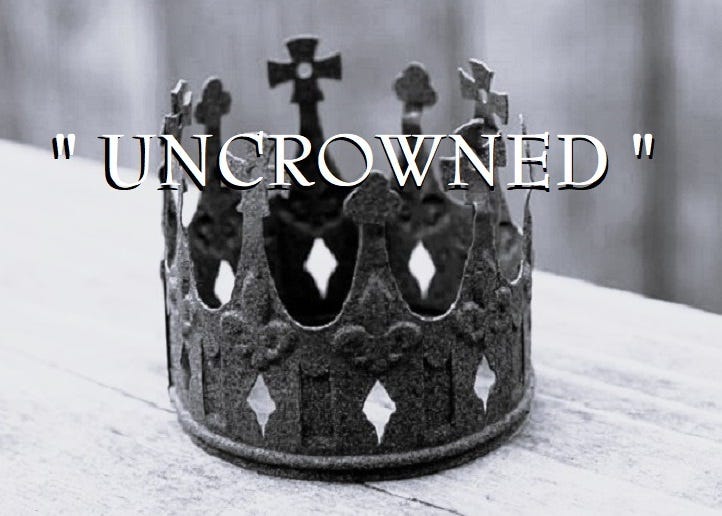
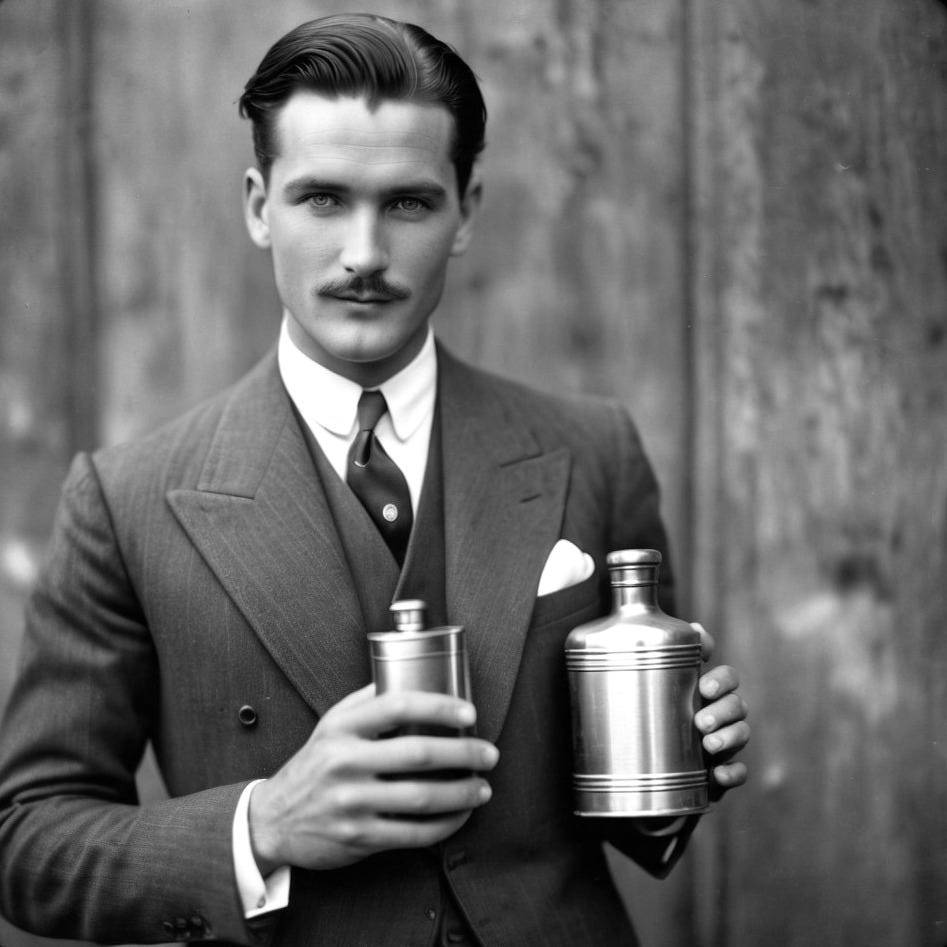
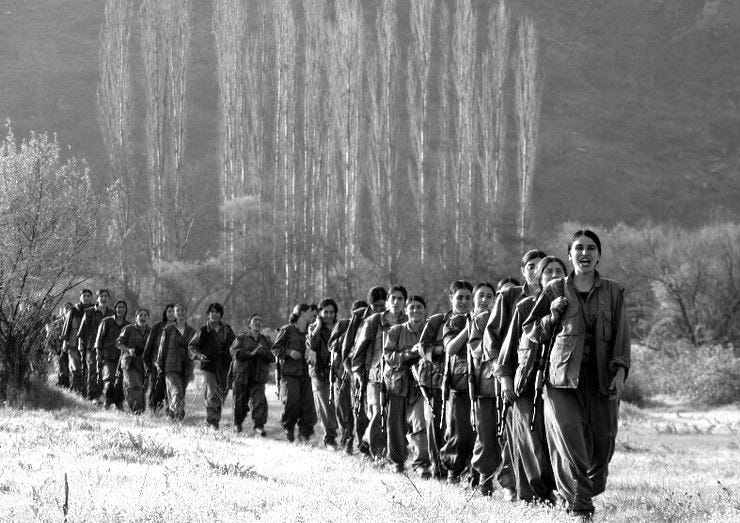
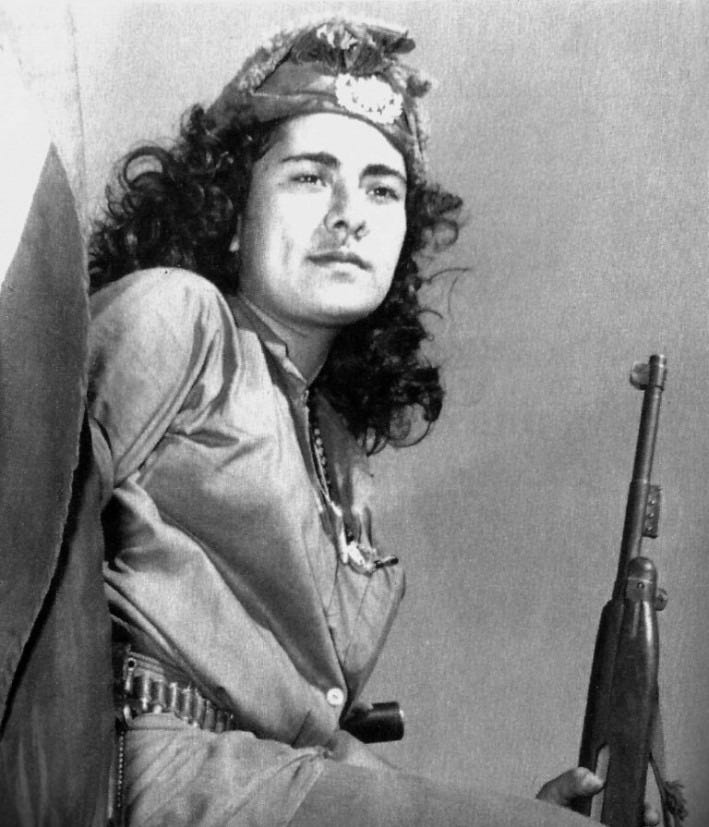
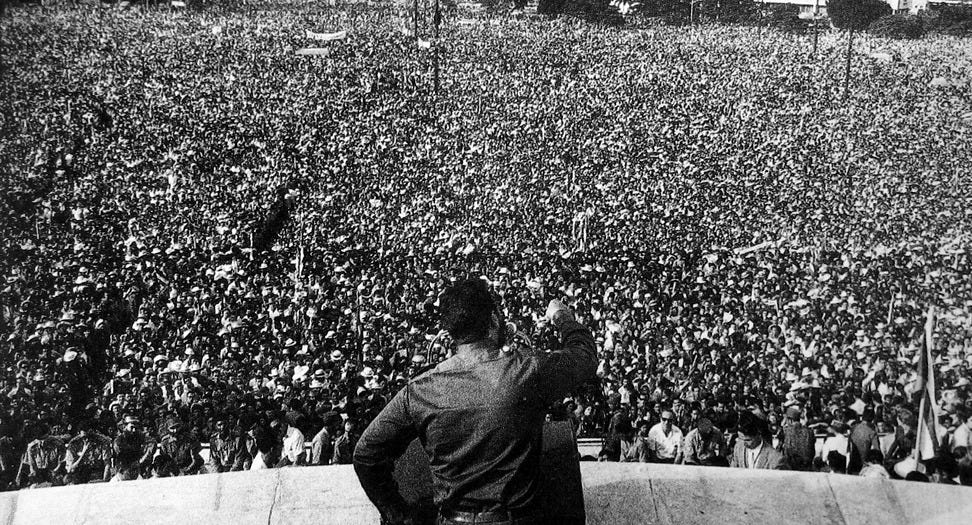
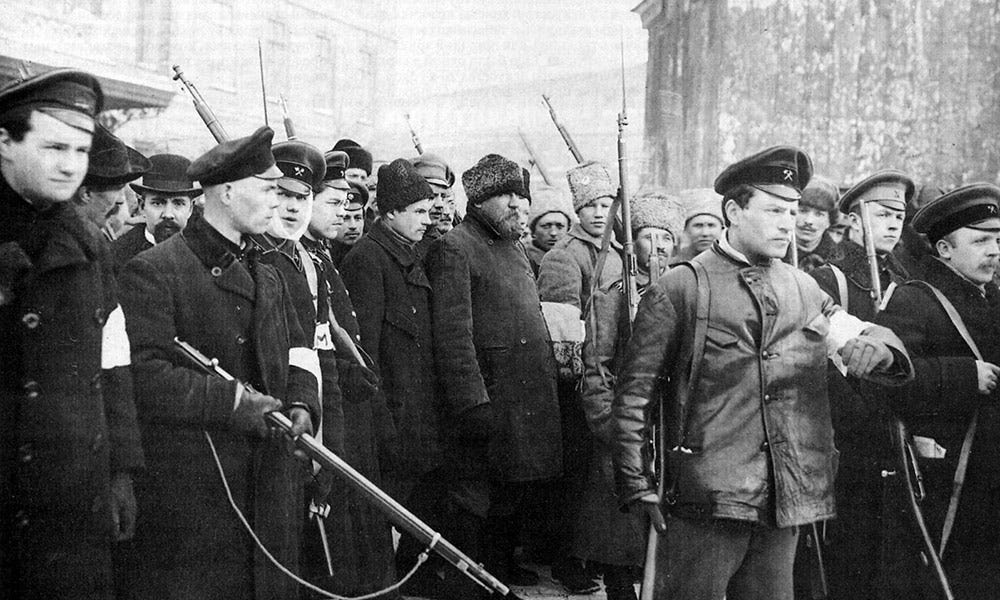
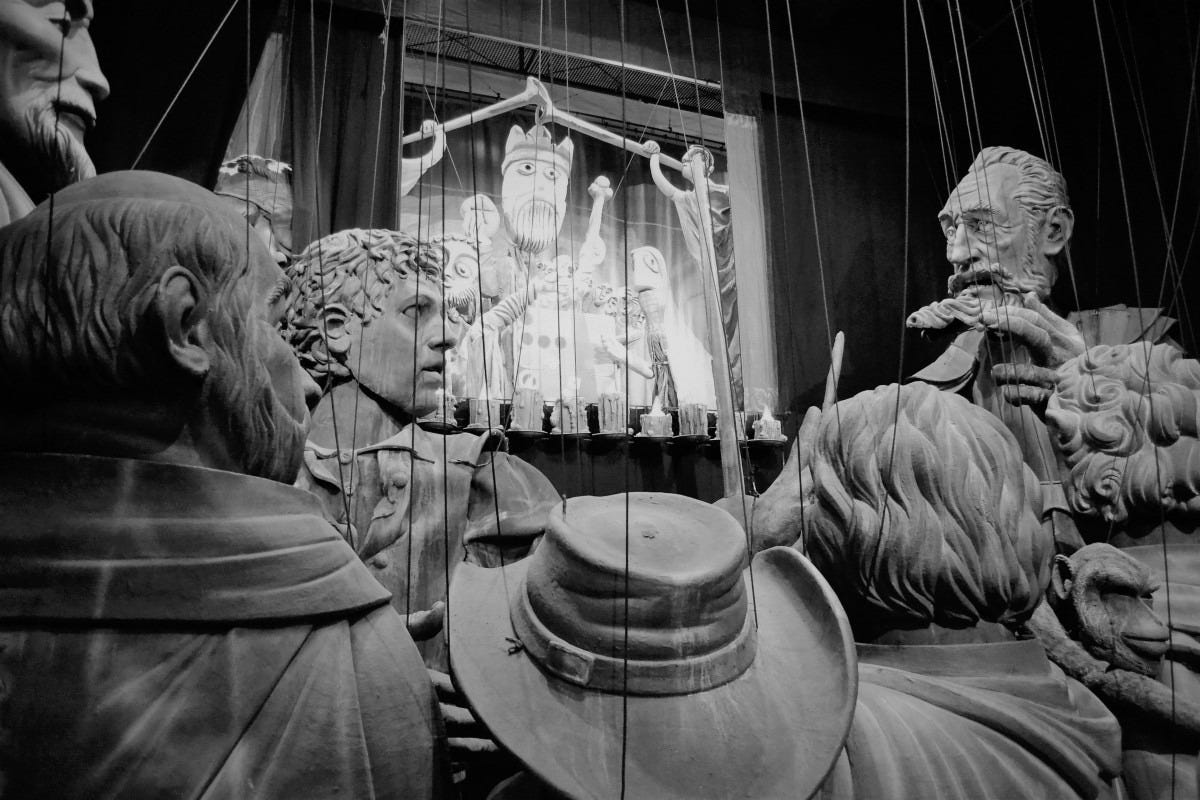
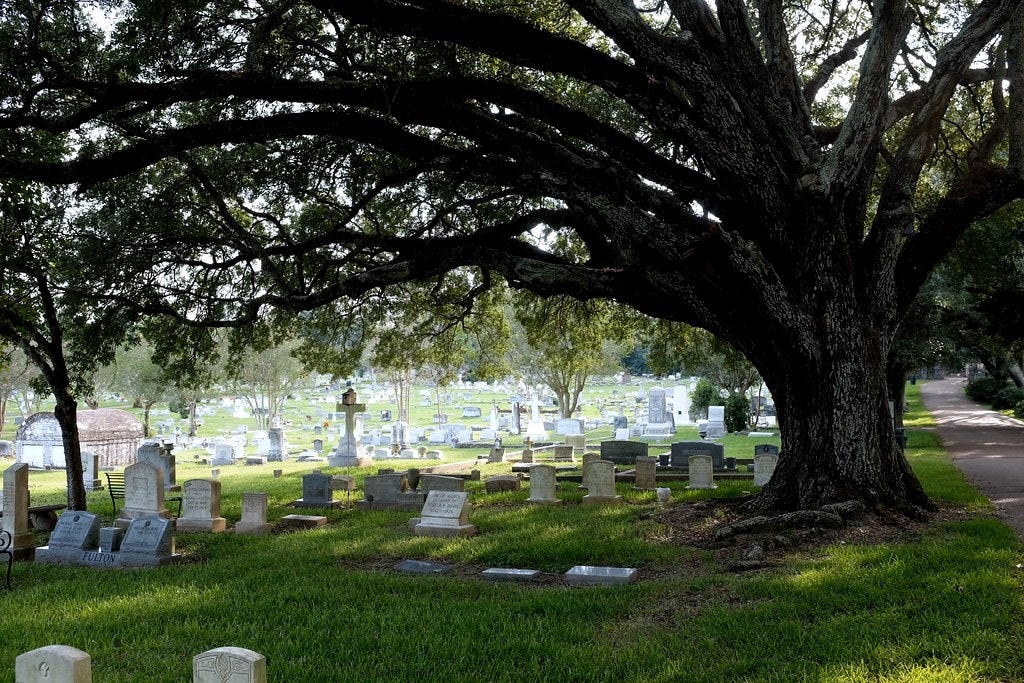
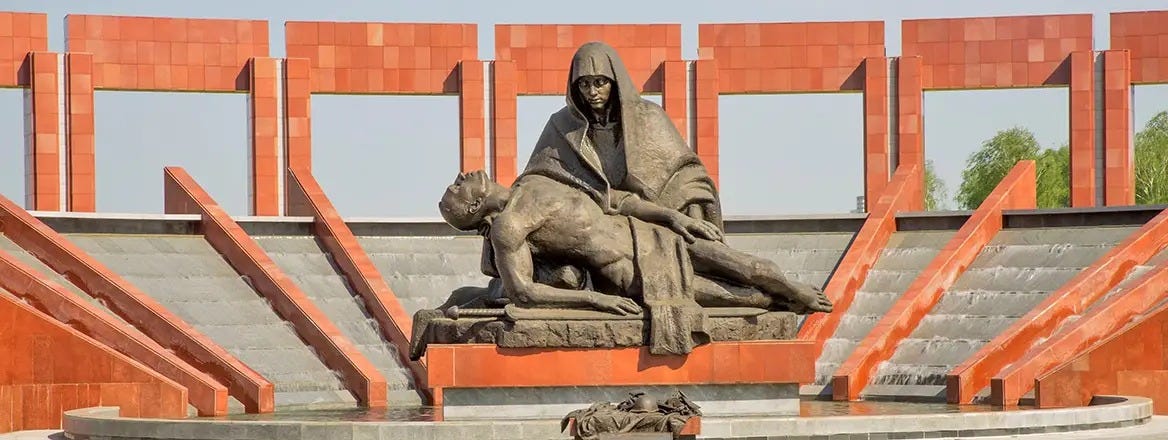
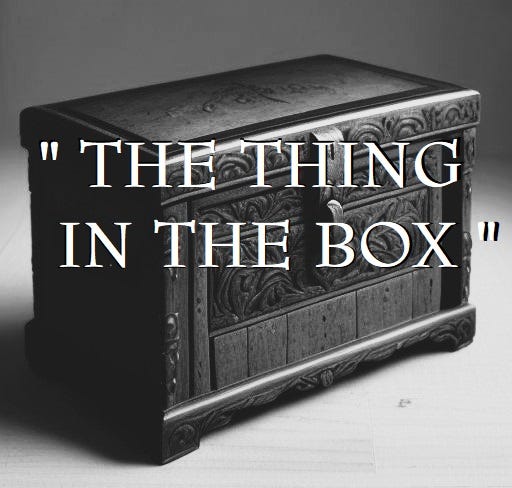
Love this!
Kind of reminded me of this song
https://youtu.be/KNZwqmEb004?si=RnMxOoBVeOZczK-v
Marvelous!